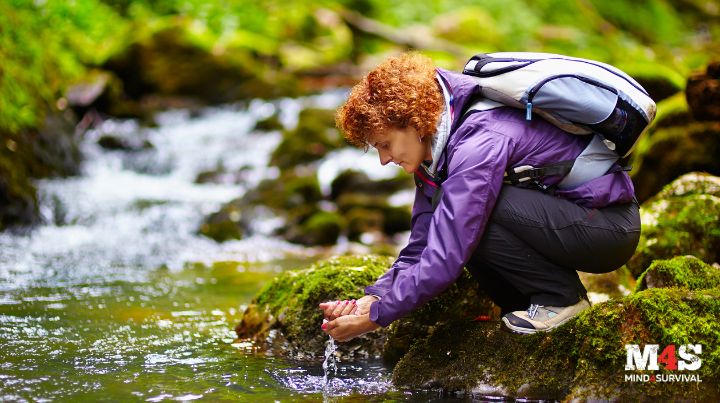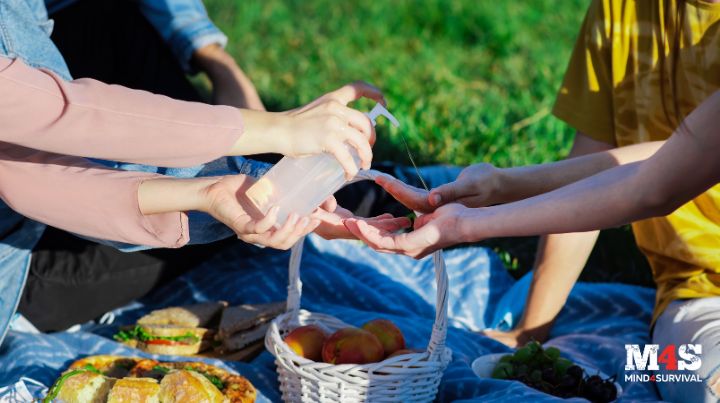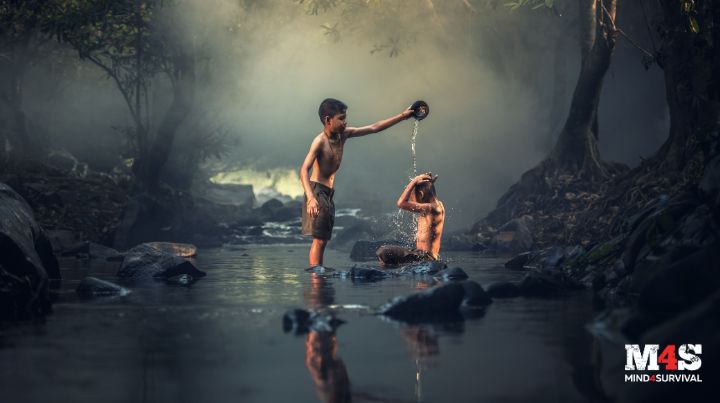Maintaining Hygiene and Sanitation During an Emergency

Maintaining hygiene and sanitation during an emergency is vital to health and well-being—especially during a prolonged disaster. Cleanliness can become a challenge when resources are scarce, yet it remains a crucial defense against disease and infection. Here are some practical tips for upholding hygiene standards during such times.
Water Supply and Purification
A steady supply of clean water is fundamental. In emergencies, water sources may become contaminated, making purification essential. Boiling water is one of the simplest and surest methods for purifying water.
Bring water to a rolling boil for at least one minute to kill most pathogens. If boiling isn't feasible, use water purification tablets or household bleach. Add eight drops of bleach per gallon of water, mix well, and let it stand for 30 minutes before use.
It is also important to store water in clean, covered containers. Keep at least one gallon of water per person per day. This ensures that drinking, cooking, and basic hygiene needs are met.

Hand Hygiene
Hand hygiene is the cornerstone of infection control. Ensure everyone washes their hands with soap and clean water regularly, especially before eating, after using the restroom, and after handling potentially contaminated items. When soap and water aren't available, use alcohol-based hand sanitizers with at least 60% alcohol content.
Be sure everyone keeps their nails trimmed and clean, as germs can easily hide under long nails. Encourage all your family members to follow these practices to minimize the spread of germs.
Personal Hygiene
Maintaining personal hygiene without access to running water can be challenging, but it's possible with a few adjustments. Use moist towelettes or baby wipes to clean your body. Focus on areas prone to sweating and bacterial growth, such as armpits, groin, and feet.
Brushing teeth twice a day is ideal for oral hygiene. In case of water shortages, focus on minimizing water usage or chewing sugarless gum to help clean your teeth.
Waste Management
Proper waste management is critical to prevent the spread of disease. Designate a specific area for waste disposal. If available, house your waste in heavy-duty trash bags and secure them tightly. If burying your waste is an option, bury it at least 200 feet away from water sources to avoid contamination.
Portable toilets or makeshift latrines can be used to collect human waste. Designate an area away from water sources and living and cooking areas. Dig a small pit latrine, about 2 to 3 feet deep, or a slit trench, and cover it with soil after each use. Ensure it's located away from living areas and water sources.

Cleaning and Disinfecting
Regular cleaning and disinfecting of living spaces reduces the risk of infection. Focus on high-touch surfaces such as door handles, light switches, and countertops. Use household disinfectants or a solution of one part bleach to ten parts water.
When washing clothes, prioritize essential items and those that are heavily soiled. Use hot water and detergent whenever possible. In the absence of a washing machine, soak the dirty clothes in soapy water, scrub them, and rinse thoroughly after. Dry them in sunlight, using the sun's UV rays to help kill bacteria.
Food Safety
Food safety is paramount during emergencies. Store your food in sealed containers to protect it from pests and contamination. Cook food thoroughly to kill pathogens and avoid cross-contamination by keeping raw and cooked food separate from one another.
In the absence of refrigeration, consume perishable foods first. For example, if the power goes out and does not return, cook the food in your freezer and refrigerator to keep it from going bad. Canned and dried foods are excellent for long-term storage, require minimal preparation, and last years. Always check expiration dates and rotate stock to ensure freshness.
Dealing with Illness
Illness can still occur despite your best efforts to keep everything clean and sanitary. When someone gets sick, isolate them to prevent the spread of disease. Provide them with their own set of utensils, bedding, and hygiene supplies in the isolation area.
Monitor symptoms closely and seek medical advice if conditions worsen. Keep a well-stocked first aid kit with essential medications, such as pain relievers, fever reducers, rehydration salts, and prescription medications.
Mental Health and Stress Management
Maintaining hygiene during emergencies isn't just about physical health—mental well-being also plays a crucial role. Stress can weaken the immune system, making one more susceptible to illness. Some things you can do to help prevent illness are:
- Establish a routine that includes personal hygiene practices to maintain a sense of normalcy.
- Engage in activities that promote relaxation and mental health, such as reading, listening to music, or practicing mindfulness exercises.
- Staying connected with loved ones, even if only by phone or messages, can provide emotional support and reduce feelings of isolation.
 Preparedness Planning
Preparedness Planning
Your preparedness efforts can significantly improve everyone's health and hygiene. Include hygiene supplies in your emergency kit. Stock up on soap, hand sanitizers, disinfectants, and hygiene products like toothpaste and menstrual supplies.
Plan for different scenarios, considering water scarcity, waste disposal challenges, and space limitations. Regularly update and review your emergency plan with all family members to ensure everyone knows their roles and responsibilities.
Community Hygiene Efforts
In a community setting, coordinated efforts can amplify the impact of individual actions. Work with neighbors to establish communal hygiene practices. Share resources like water purifiers and waste management solutions. Community health education is also vital. Spread awareness information about hygiene practices and the importance of cleanliness during emergencies.
The Bottom Line on Sanitation and Hygiene in Disasters
Maintaining hygiene and sanitation during an emergency requires planning, resourcefulness, and collective effort. While the task may seem daunting, breaking it down into manageable steps can make a significant difference. Clean water, hand hygiene, proper waste disposal, and community cooperation will support your group's overall health and well-being. By prioritizing these aspects of sanitation and hygiene, you can safeguard yourself and your loved ones against the spread of disease and maintain a semblance of normalcy in trying times.
What are your thoughts on hygiene and sanitation during prolonged emergencies? Tell us in the comments below.
Additional Resources:
- EPA: Emergency Disinfection of Drinking Water
- SHTF Sanitation: Staying Sterile While in Peril
- Salmonella: What You Need To Know
- How to Purify Water for Drinking
Stay safe,

Related Articles
FREE Guide
Read the Best Seller
Join Mind4Survival
Stay informed by joining the Mind4Survival! 100% Secure! 0% Spam!
Affiliate Disclosure...
Mind4Survival is a free, reader-supported information resource. If you make a purchase through our link, we may, at no cost to you, receive an affiliate commission.
Do You Want To Be Ready No Matter What?

Download our free 39-page guide with interactive, 7-Day Emergency Kit Checklist and take the first step toward real preparedness.
- Know exactly where to start.
- Save time and money.
- How-to build a complete Basic Emergency Kit.
- Level up your safety and security.
Join Mind4Survival
Stay informed by joining the Mind4Survival! 100% Secure! 0% Spam!





